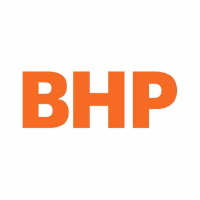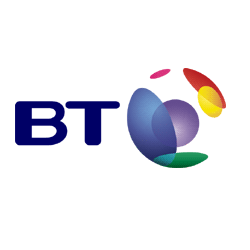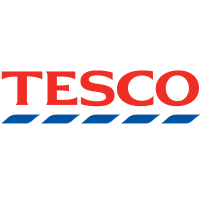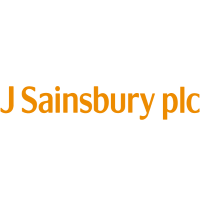London open: FTSE rallies after bumper US rate cut; BoE in focus

London stocks rallied in early trade on Thursday as investors mulled a bumper rate cut from the US Federal Reserve and eyed the latest policy announcement from the Bank of England.
At 0830 BST, the FTSE 100 was up 0.9% at 8,325.46.
Matt Britzman, senior equity analyst at Hargreaves Lansdown, said: “The FTSE 100 has opened 0.9% higher as investors digest the US rate pivot and look to the Bank of England for signals as to how the rest of the year might play out at home. Yesterday’s inflation print isn’t likely to have a major impact on today’s decision, with the headline jump in services inflation due to volatile airfares. Still, slow and steady wins the race, and the general expectation is that rates will be held steady at 5%, following the narrow 5-4 vote to cut back in August.
“Looking across the pond, the Fed opted to go big yesterday and cut rates for the first time in four years by a bumper 0.50% – perhaps a sign that there was a slight feeling that they missed the boat last time around. But US markets ended up trading lower yesterday after the initial excitement, and a brief all-time high on the S&P 500, was quelled by more hawkish comments from Fed Chair Jay Powell in his press speech. Though, if we look at futures markets, trading suggests that those highs could be tested again when markets open this afternoon.
“There are two key takeaways here. The first is that the cutting cycle has begun, which should be supportive of growth and equity prices, especially small caps. The second is a potential shift in priority for the US central bank. No longer pursuing the (arguably arbitrary) 2% inflation target at all costs, there seems to be a pivot toward economic growth. The Fed’s mettle will be tested in the coming quarters as inflation measures like CPI look likely to remain volatile over the short term.”
In equity markets, Next jumped to the top of the FTSE 100 after the clothing retailer once again upgraded annual earnings guidance as full price sales in the first six weeks of the second half of the year “materially exceeded” expectations, rising 6.9%.
It lifted 2024/25 pre-tax profits forecasts £15m to £995m, up 8.4% on last year, after interim profits for the six months to July surged 7.1% to £452m.
Equipment rental firm Ashtead was also a high riser after an initiation at ‘buy’ by Berenberg.
Online grocer and logistics group Ocado surged after it upgraded its revenue guidance for Ocado Retail – its joint venture with Marks & Spencer – following a strong third-quarter performance which saw retail revenues jump 15.5%.
The company is now targeting low double-digit percentage growth in sales over the year to 3 December, from the £2.8bn generated last year. That’s up from earlier guidance for mid-high single-digit growth given in July.
Marks & Spencer also gained on the news.
Close Brothers rose after saying it had agreed to sell its wealth management arm for up to £200m to funds managed by Oaktree Capital Management and as it released in-line full-year results.
Bytes Technology was in the black as it said trading has remained strong since it updated the market at its annual meeting in July.
IG Group and Drax were both lower as they traded without entitlement to the dividend.
Top 10 FTSE 100 Risers
| Sponsored by Plus500 |
|
| # | Name | Change Pct | Change | Cur Price | |
|---|---|---|---|---|---|
| 1 |  |
Jd Sports Fashion Plc | +4.33% | +6.50 | 156.70 |
| 2 |  |
Anglo American Plc | +4.17% | +88.50 | 2,212.00 |
| 3 |  |
Ashtead Group Plc | +4.01% | +222.00 | 5,762.00 |
| 4 |  |
Rio Tinto Plc | +3.70% | +176.50 | 4,942.00 |
| 5 |  |
Antofagasta Plc | +3.60% | +64.00 | 1,841.50 |
| 6 |  |
Glencore Plc | +3.37% | +12.80 | 392.65 |
| 7 |  |
Wise Plc | +3.20% | +20.50 | 661.50 |
| 8 |  |
Prudential Plc | +3.07% | +19.40 | 651.40 |
| 9 |  |
Bhp Group Limited | +3.07% | +62.00 | 2,083.00 |
| 10 |  |
Ferguson Enterprises Inc. | +3.01% | +460.00 | 15,760.00 |
Top 10 FTSE 100 Fallers
| Sponsored by Plus500 |
|
| # | Name | Change Pct | Change | Cur Price | |
|---|---|---|---|---|---|
| 1 |  |
National Grid Plc | -2.67% | -28.00 | 1,022.50 |
| 2 |  |
Sse Plc | -2.20% | -44.00 | 1,952.50 |
| 3 |  |
Vodafone Group Plc | -2.07% | -1.62 | 76.46 |
| 4 |  |
Severn Trent Plc | -1.53% | -41.00 | 2,641.00 |
| 5 |  |
Bt Group Plc | -1.35% | -2.00 | 146.10 |
| 6 |  |
British American Tobacco Plc | -1.12% | -32.00 | 2,836.00 |
| 7 |  |
Tesco Plc | -1.00% | -3.70 | 364.70 |
| 8 |  |
Sainsbury (j) Plc | -0.87% | -2.60 | 294.60 |
| 9 |  |
Imperial Brands Plc | -0.82% | -18.00 | 2,166.00 |
| 10 |  |
Haleon Plc | -0.71% | -2.80 | 394.00 |
US close: Stocks fall, markets choppy as Fed slashes interest rates by 50bp
US stock markets finished a memorable day in the red on Wednesday as the Federal Reserve made its biggest cut to interest rates in 16 years.
The Fed lowered the Federal Funds Rate by 50 basis points to 4.75-5.0%, marking the first time monetary policy has been eased since March 2020.
The past week has seen increased bets that the Fed would indeed go ahead with a 50bp reduction in the Federal Funds Rate, though many still expected a more conservative 25bp cut.
“The market was right, economists were mostly wrong. The Federal Reserve started their rate-cutting cycle with a bang,” said Kathleen Brooks, research director at XTB.
Markets react
Stocks initially gave a positive reaction to the decision, but gains were quickly erased, with all three Wall Street benchmark indices falling 0.3% by the close. The S&P 500 in particular was retreating after briefly hitting a new intraday record high of 5,689.75 after the news.
The dollar also swiftly dropped to its lowest levels in a year, with the dollar index touching a 52-week low of 100.22 before paring losses by the close.
In the subsequent press conference, Fed chair Jerome Powell labelled the cut as “timely” amid a solid jobs markets and the recent slowdown in inflation. Yet the economic outlook was still “uncertain”, he said.
“The Fed doesn’t like to admit policy errors, but some of the decision for a larger initial cut is likely to get caught up as it found itself behind the curve by one meeting,” said chief US economist Ryan Sweet from Oxford Economics. “The September decision is a preemptive strike to increase the odds that the central bank can pull off a soft landing.”
Meanwhile, analysts at Berenberg said the Fed’s move doesn’t really change the economic outlook, especially since the central bank left its projections for economic growth over the next three years almost unchanged. “The Fed today tried to reassure observers that its big move did not reflect any substantial bad news about the economy,” said Berenberg economist Salomon Fiedler.
Economic data
For those able to peel their eyes off the Fed, there was a barrage of economic data to contend with.
US mortgage applications surged 14.2% in the week ended 13 September, according to the Mortgage Bankers Association of America, marking the fourth-consecutive weekly gain. Applications to purchase a home were 5% higher, while applications to refinance a home shot up 24% week-on-week.
US housing starts jumped 9.6% in August to an annualised rate of 1.35m, according to the Census Bureau, beating market expectations for a reading of 1.31m. Housing starts rebounded from an almost 7% decline in the previous month to register the sharpest monthly increase seen in nine months.
Finally, the Census Bureau revealed building permits rose by 4.9% to 1.47m, the highest reading seen in five months and beating expectations for a print of 1.41m. Approvals of units in buildings with five units or more advanced by 8.4% to 451,000 and single-family authorisations went up by 2.8% to 967,000.
Market movers
The big mover of the day was Intuitive Machines after the Houston-based space exploration group received a $5bn contract from NASA, sending shares up 38%.
General Mills finished flat as the American processed foods giant reiterated its full-year targets. The company reported a decline in sales and profits in its first quarter.
Barclays comments were helping stocks in the retail and apparel sector: Victoria’s Secret got a boost from an upgrade from ‘underweight’ to ‘equal weight’, while VF Corp was lifted from ‘equal weight’ to ‘overweight’.
Thursday newspaper round-up: Boeing, zero-hours contracts, voluntary insolvencies
Boeing’s CEO said on Wednesday that the company would begin furloughing “a large number” of employees to conserve cash during the strike by union machinists that began last week. The chief executive, Kelly Ortberg, said the layoffs would be temporary and affect executives, managers and other employees. – Guardian
Governments and private companies should contribute to a global artificial intelligence fund that will allow developing nations to benefit from advances in the technology, according to a UN report. The fund would help provide models, computing power and AI-related training programmes, according to recommendations from the UN secretary general’s high-level AI advisory body. – Guardian
Companies could be forced to offer all staff regular hours after three months as part of a crackdown on zero-hours contracts. Deputy Prime Minister Angela Rayner and Business Secretary Jonathan Reynolds told bosses and unions in a private call on Wednesday that they were working on a policy which could force employers to offer zero-hours workers a regular contract after 12 weeks. – Telegraph
Large firms face a crackdown on late payments to small businesses as part of a raft of government measures to tackle an issue that drives 50,000 smaller firms to the wall every year. Delayed payment of invoices costs small businesses £22,000 a year on average, according to the Department for Business & Trade (DBT) and research from the Federation of Small Businesses. – The Times
Concerns have been raised that voluntary insolvencies are being abused to enable companies to drop debts with little scrutiny. So-called creditors voluntary liquidations occur when a company’s shareholders agree to liquidate the company because it is insolvent and cannot pay its debts. They have reached the highest level since records began last year as they have become by far the most common form of corporate insolvency. An insolvency expert has warned that they are sometimes being sold by unscrupulous firms as a way to drop debts with little risk of scrutiny. – The Times

 Hot Features
Hot Features












